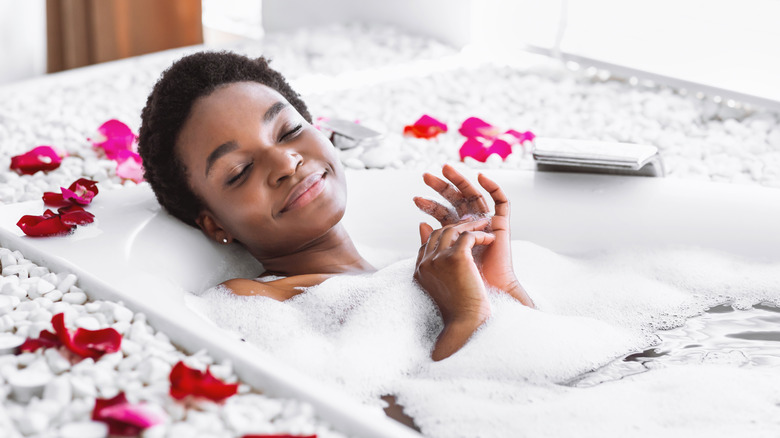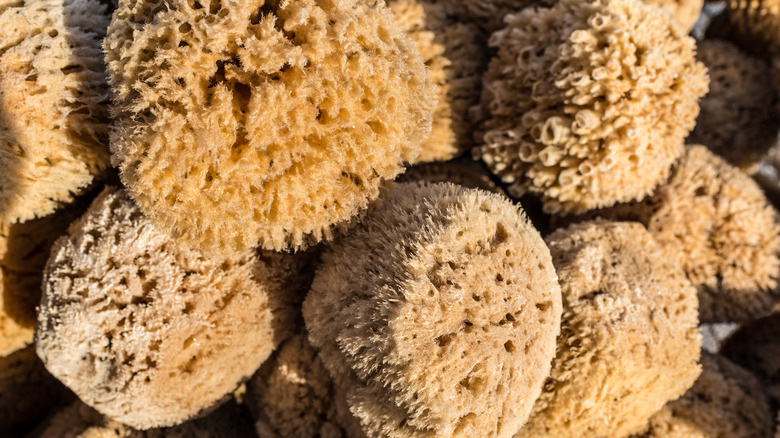Natural Sea Sponge Vs. Synthetic Sponge: Which Is Better For Bathing?
A warm, relaxing bath is an awesome way to de-stress and unwind. Or, maybe a shower is your go-to way to feel refreshed. But no matter which method of getting clean you prefer, the decisions don't stop there. For example, you may have a favorite soap or body wash, but what's your method of choice to create maximum lather? If you're a fan of sponges, then you've got two main choices: natural or synthetic. According to Natural Bath and Body, natural sea sponges can come in a variety of sizes and textures. Wool sponges are soft, while yellow sponges offer a bit of exfoliation. For anyone looking for some extra scrub, Caribbean Grass sponges provide even more exfoliation.
Per the Chicago Tribune, synthetic foam sponges can have a porous texture that better absorbs water. Some are crafted to look more like sea sponges, while others more closely resemble kitchen sponges. Additionally, some synthetic sponges may have a softer side and an exfoliating side — but with all these choices available to you, how do you know which sponge is best for when you want to get clean?
Go natural for your best bathing experience
Since getting clean is your goal, you don't want to add germs. According to Natural Bath and Body, natural sea sponges have enzymes that prevent icky bacteria, mold, and mildew from colonizing your sponge. These natural sponges are also pros at retaining water, making it easier to get clean. By contrast, How Stuff Works reports that synthetic sponges require antimicrobial ingredients to prevent germs, such as triclosan. According to Mayo Clinic, the FDA banned the use of triclosan in soaps and body washes in 2016 due to safety concerns. Another reason for opting for natural sponges is the fact that they are sustainable (when properly harvested). Per Hunker, synthetics are often made from tree-based cellulose and polyurethane, a petroleum byproduct. Manufacturing these sponges can also cause pollution.
Furthermore, natural sponges are gentler at cleaning and better for your skin. According to How Stuff Works, synthetics can be too abrasive, and antibacterial chemicals could irritate your skin. For an optimal choice, Natural Spa Supplies recommends an unbleached sponge. Darker in color, these sponges are more durable, since they are not subjected to pollution-causing acid baths during processing. Once it's time to retire your sponge from bathing, you can reuse it for cleaning purposes. Afterwards, natural sea sponges can be cut up and composted. Conversely, a synthetic sponge may take up to 20 years to break down, per Natural Spa Supplies.

